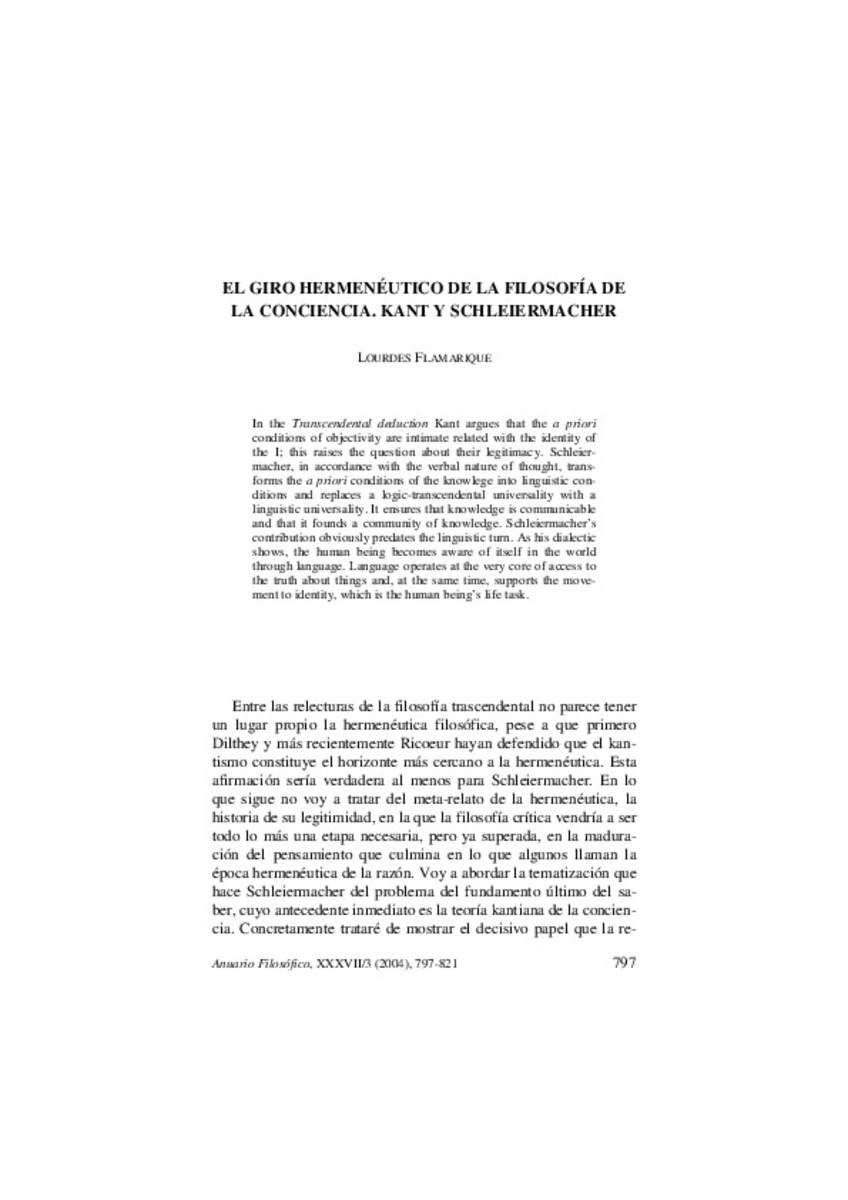El giro hermenéutico de la filosofía de la conciencia. Kant y Schleiermacher
Ficheros en este ítem:
Estadísticas e impacto
Los ítems de Dadun están protegidos por copyright, con todos los derechos reservados, a menos que se indique lo contrario.







